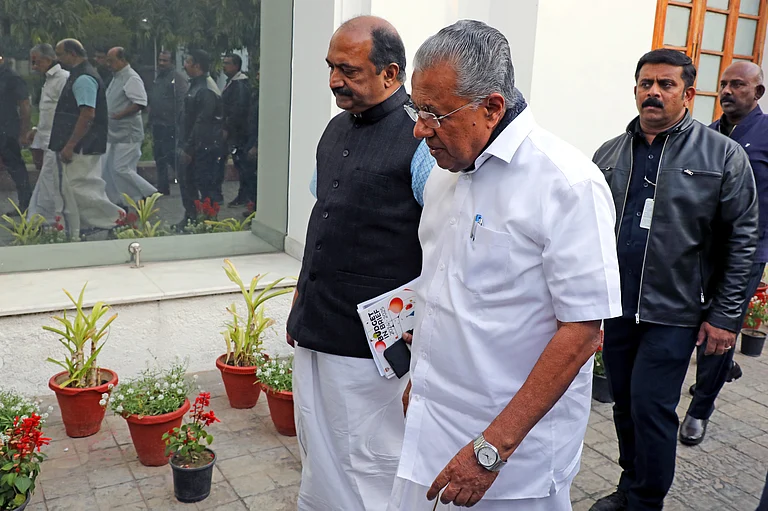The row over alleged discrimination in federal fund allocation to states flared up again this year after Union Finance Minister Nirmala Sitharaman tabled the Interim Budget in February. Various Parliament sessions since then have seen arguments between the Centre and the Opposition over the issue.
In the Interim Budget, while Uttar Pradesh received 18 per cent of the funds devolved to the states, Andhra Pradesh and Tamil Nadu received only 4 per cent; Karnataka received only 3 per cent; and Telangana and Kerala received only 2 per cent and 1 per cent respectively .
There were squabbles between Sitharaman and Congress’ Adhir Ranjan Chowdhury in Parliament in which the latter claimed that non-BJP states, especially in south India, were deprived of their financial dues.
To this, Sitharaman in a response in June clarified that “devolution to states takes place according to Finance Commission recommendation and she had no discretion in allocation of tax revenues.”
The 16th Finance Commission
As prescribed under Article 280 of the Constitution, the key function of a Finance Commission is to make several important recommendations, including on the distribution of the divisible pool of taxes between the Centre and the states.
Over a month after its constitution, the 16th Finance Commission held its first meeting in New Delhi in February. In a statement issued after it, it acknowledged the need for wide-ranging consultations with various stakeholders, including state governments, local bodies, ministries of the Government of India, and experts. It stated that its recommendation to cover an award period of five years will be made available by October 31, 2025.
Karnataka Raises The Pitch
When the 16th Finance Commission held consultations with the Karnataka government in Bangalore on August 29, Karnataka Chief Minister had Siddaramaiah emphasised the importance of fiscal federalism and cooperative federalism.
Karnataka had said that while economically advanced states would support the poorer ones, this should not be at the cost of their own residents and economic efficiency.
Stressing on the issue of imbalance, Siddaramaiah had then asked Arvind Panagariya, Chairman of the 16th Finance Commission, “Did you know that for every rupee Karnataka contributes to the national exchequer, it gets only 15 paise back? Despite Karnataka’s substantial contribution of nearly Rs 4 lakh crore to the Union’s Gross Tax revenue yearly, the state gets nearly Rs 45,000 crore in the form of devolution and about Rs 15,000 crore grant in aid.”
The Chief Minister proposed that 60% of a state’s contribution to the divisible pool should be allocated in return to it.
Karnataka, Kerala, and Tamil Nadu were the three states that held demonstration in February in New Delhi alleging discrimination in federal funds allocated to states. Siddaramaiah and his deputy DK Shivakumar were at the protest in Jantar Mantar.
At the protest, Siddaramaiah had alleged that the 15th Finance Commission had incorrectly altered the formula to calculate the devolution of tax revenue to states, specifically to Karnataka.
Kerala Announces Conclave
Only days after the 16th Finance Commission meeting in Karnataka, Kerala Finance Minister KN Balagopal announced the Conclave of Finance Ministers from several south Indian states and Punjab on September 12, adding that it would be an important avenue for the states to demand restructuring of Centre-state fiscal relations.
“The (Finance) commission has begun interactions with states. A united stand of the state governments on fiscal matters has become imperative and the meeting will help achieve this,” were Balagopal’s words on the occasion.
Kerala has been demanding the 16th Finance Commission for a correction in the devolution of tax shares. It has also criticised the Centre for increasing cesses and surcharges, and for losing goods and services tax compensation. Kerala has also filed in Supreme Court a suit against the Centre's decision on the net borrowing ceiling for states.
In mid July, Punjab Chief Minister Bhagwant Mann met the 16th Finance Commission Chairman in New Delhi pressing the state’s case for a grant. A special package of Rs 1.32 lakh crore was sought. The meeting had taken place amid concerns over freebies doled out by Punjab while it had a revenue deficit of Rs 23,198 crore.




























